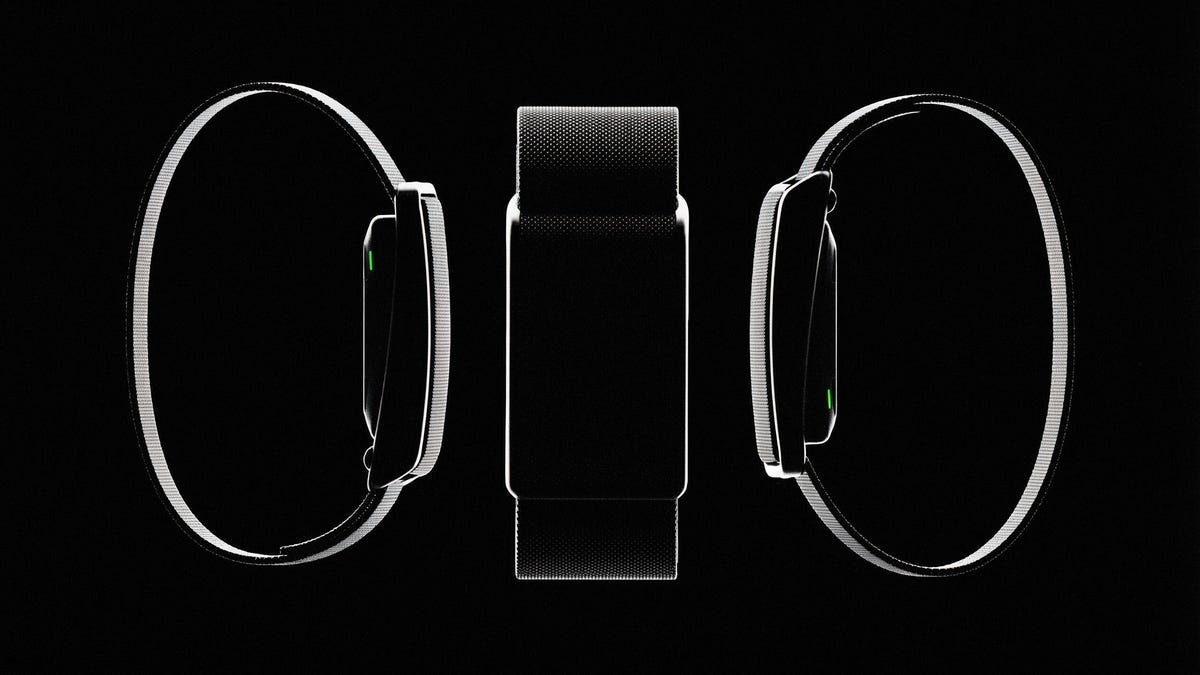Technologies
The Absolute Worst CES Tech We’ve Seen in the Last 25 Years
Not every gadget can be a winner. Toilet robots, MP3 weaponry and vacuum shoes are just some of the oddities we’ve seen at CES over the last two decades.

CES 2023 is over, and together we’ve seen our share of both weird and wonderful devices at this year’s show, but… mostly weird.
Flying cars and obscure robots are so old hat now, and so I wondered if CES could do anything less practical and even more completely bonkers. Turns out it can! Over the past 20-plus years, I’ve seen gadgets so stupefying that sometimes they exist purely because journalists like me will write about them. But it’s time to call out the really awful ones, the worst of the worst. Vacuum shoes, toilet paper robots, MP3 weapon holsters, it’s your time to shine!
The most interesting part about this rogues gallery is that some of these products — the Pepe pet dryer, the HapiFork and the Hushme, to name a few — are still being sold today. That’s right: You blew it up, you maniacs!
Dyson Zone Air-Purifying Headphones
Not technically a CES product, as this was announced during 2022, but Dyson was demonstrating the Zone headphones in Las Vegas during CES 2023. Though the Zone looks like it should be a COVID mask, that’s unfortunately not what it does. According to the Dyson site, development on the Zone began way back in 2016 as a personal air filter — for pollution, mainly — and as such, it was never designed to protect against COVID. Furthermore, one critic has claimed the gadget’s force-driven fans could even help maximize your chances of catching coronavirus. CNET’s Katie Collins, who tried it out at Dyson’s HQ in the UK, thought it was «too brilliant and bizarre to ignore.»
Read more: Dyson Zone Air Filtering Headphones on Sale in January for $949
Charmin Rollbot
Computer peripherals manufacturer Razer is the king of creating «look at me» products specifically for CES, but toilet tissue brand Charmin became notorious for this 2020 entry. That’s right, in the year that saw the mass panic buying of toilet paper came a robot that could bring you even more! Coincidence? Yes… probably. The RollBot was never going to be a real product, but we loved/loathed it anyway.
Read more: These Charmin Robots Make Us Wonder: Is Pooping the Next Tech Frontier?
Kolibree Smart Toothbrush
Remember when we had to wash our hands for 20 seconds by singing songs to ourselves? The same methodology also applies to brushing your teeth, but why should you use your own brain and lips like a sucker? There have been many smart toothbrushes over the years, but today I’m picking on the Kolibree. Everything was just fine until the arrival of «the world’s first connected electric toothbrush.» Happy birthday to you, happy birthday to you…
Read more: Kolibree’s Connected Toothbrush Aims for Better Dental Health
Taser MP3 Holster
Back in the 2000s, the iPod became such a cultural phenomenon that every company rushed to create an MP3 player of its own. This culminated in what is one of the dumbest CES products in recent memory: the Tazer MP3 holster. Imagine trying to not only charge your holster but also connect it via USB to your computer to fill it up with 1GB of tunes.
Read more: What Every Taser Needs: A Music-Playing Holster
Pepe Pet Dryer
Want to find a new way to make your small dog or cat hate you forever? Lock them in a cube prison for 25 minutes (!) and subject them to gusts of hot air. This combination torture device/dryer would have set you back $660, or you could just throw a towel over your wet dog like a normal human.
Read more: At CES 2019, a $660 Sauna Will Give Your Dog the Blow Dry of His Life
HapiFork
Throughout history, there have been so many gadgets designed to limit normal human behavior, but this one takes the (pan)cake. The HapiFork is yet another vibrating gadget that tells you to eat your meals slower (over 20 minutes), with the idea being that you are less likely to overeat. Personally, I wolf my own meals down like I’m in prison, so do your worst, HapiFork. I’ll eat with my hands if I have to! You’re not the boss of me!
Read more: Bolting Your Food? Put On the Brakes With HapiFork
Hushme
The Hushme is literally a «dumb» product — it’s designed to make its user mute to other people in the immediate vicinity. It was pitched as being useful in workplaces, but… if a co-worker gave me one of these, they’d better be wearing vacuum shoes, in order to clean up the gleefully stomped-on bits.
Read more: Hushme May Be the Weirdest, Yet Most Useful Wireless Headphones Ever Created
Belty
The original Belty was a prototype smart belt with a motor in it that adjusted itself to whether you just ate or were sitting down. Impractical as hell, but kind of cool? While there is a newer model, also called Belty, this one is even weirder — there’s no auto-sizing, but it does have a power bank charger in the buckle. OK, two things. Not only do I not want a potentially volatile compound near my nethers, I don’t want to connect a series of devices there either.
Read more: Meet Belty, the Ridiculous but Strangely Popular Show-Stealer of CES Unveiled
Xybernaut Poma
First shown off at CES 1998, the Hitachi Xybernaut wearable computer was a terrible idea long before Google Glass was even a gleam in Babak Parviz’s eye. The Windows CE-based Xybernaut Poma offered a 128MHz RISC processor and 32MB of RAM for the low price of $1,499, plus it strapped to your arm and your face and your belt!
Read more: Hitachi Fashioning Wearable PCs
Denso Vacuum Shoes
Shoes. You wear ’em. They wear out, you buy more. But that’s not exciting now, is it? They need things in them — phones, rockets, rollers and… vacuums? There are so many puns I could make about even just the name of the Denso Vacuum Shoes, but the fact that they existed at all was the biggest joke of all.
Read more: Vacuum Cleaner Shoes Show Up at CES Because Why Not
Technologies
Speediance’s Compact Resistance Trainer and Wearable Make Wellness and Fitness More Connected
Speediance unveils a portable strength training device and a wearable at CES.

Speediance unveiled its new Gym Nano and Speediance Strap products this week at CES 2026. The smart fitness equipment manufacturer, which previously developed its own smart home gym, the Gym Monster 2, designed the Gym Nano and Speediance Strap to complement its current equipment ecosystem.
«Rather than developing products in isolation, we’re building a comprehensive training and health ecosystem that adapts to users’ real lives and empowers better decision-making over time,» Speediance founder and CEO Liu Tao said in a statement.
Speediance used the consumer tech expo in Las Vegas to demonstrate the Gym Nano, a portable, motor-driven cable resistance training system designed to occupy minimal space for those who prefer to work out at home. The strap is a prototype wearable device designed to read your health data and provide training recommendations based on this insight.
CNET previously tested Speediance’s VeloNix AI Smart Bike and named it the best AI-powered exercise bike.
Don’t miss any of our unbiased tech content and lab-based reviews. Add CNET as a preferred Google source.
Gym Nano
The Gym Nano is a compact digital cable resistance machine trainer that fits any space and delivers full-body workouts. It’s meant to make strength training at home easier if you have limited space and can’t commit to larger home gym equipment.
The Gym Nano offers up to 220 pounds of resistance through adjustable 1-pound increments. It also has five dynamic weight modes: Eccentric, Chain, Standard, Fixed Speed and Sled.
Speediance Strap
The Speediance Strap is a screen-free wearable that collects data related to your sleep, training and core body temperature. It then uploads and shares this data to the Speediance Wellness Plus app, where it makes suggestions for your daily training and recovery based on this information.
The strap can be used for both endurance and strength training activities and recognizes various types of exercises, movement patterns, training volume and other insights that can help you learn how well your body is responding to your training.
The Speediance Strap is a screen-free wearable that collects data related to your sleep, training and core body temperature. It then uploads and shares this data to the Speediance Wellness Plus app, where it makes suggestions for your daily training and recovery based on this information. Similar to other wearables, the Speediance Strap assesses your readiness each day and can detect stress factors to determine if you should focus more on recovery on that day.
«With Speediance Strap, we are exploring how wearable data can function as part of a decision-support layer within a connected fitness system, rather than existing as isolated metrics,» Tao said in a statement.
Additionally, everyday insights (like core and recovery data) will be free to you unless you want to upgrade to the Wellness Plus access, which will come at an additional cost to receive long-term insights and AI planning.
It’s unclear when the Gym Nano will be available for purchase, but the Speediance Strap is expected to launch through a Kickstarter campaign in spring 2026.
Technologies
OpenAI Launches ChatGPT Health: A Dedicated Tab for Medical Inquiries
The company wants you to upload your medical records and connect the wellness apps you use.

ChatGPT is expanding its presence in the health care realm. OpenAI said Wednesday that its popular AI chatbot will begin rolling out ChatGPT Health, a new tab dedicated to addressing all your medical inquiries. The goal of this new tab is to centralize all your medical records and provide a private area for your wellness issues.
Looking for answers about a plethora of health issues is a top use for the chatbot. According to OpenAI, «hundreds of millions of people» sign in to ChatGPT every week to ask a variety of health and wellness questions. Additionally, ChatGPT Health (currently in beta testing) will encourage you to connect any wellness apps you also use, such as Apple Health and MyFitnessPal, resulting in a more connected experience with more information about you to draw from.
Online privacy, especially in the age of AI, is a significant concern, and this announcement raises a range of questions regarding how your personal health data will be used and the safeguards that will be implemented to keep sensitive information secure — especially with the proliferation of data breaches and data brokers.
Don’t miss any of our unbiased tech content and lab-based reviews. Add CNET as a preferred Google source.
«The US doesn’t have a general-purpose privacy law, and HIPAA only protects data held by certain people like health care providers and insurance companies,» Andrew Crawford, senior counsel for privacy and data at the Center for Democracy and Technology, said in an emailed statement.
He continued: «The recent announcement by OpenAI introducing ChatGPT Health means that a number of companies not bound by HIPAA’s privacy protections will be collecting, sharing and using people’s health data. And since it’s up to each company to set the rules for how health data is collected, used, shared and stored, inadequate data protections and policies can put sensitive health information in real danger.»
OpenAI says the new tab will have a separate chat history and a memory feature that can keep your health chat history separate from the rest of your ChatGPT usage.
Further protections, such as encryption and multifactor authentication, will defend your data and keep it secure, the company says. Health conversations won’t be used to train the chatbot, according to the company.
Privacy issues aside, another concern is how people intend to use ChatGPT Health. OpenAI’s blog post states the service «is not intended for diagnosis or treatment.»
The slope is slippery here. In August 2025, a man was hospitalized after allegedly being advised by the AI chatbot to replace salt in his diet with sodium bromide. There are other examples of AI providing incorrect and potentially harmful advice to individuals, leading to hospitalization.
OpenAI’s announcement also doesn’t touch on mental health concerns, but a blog post from October 2025 says the company is working to strengthen its responses in sensitive conversations. Whether these mental health guardrails will be enough to keep people safe remains to be seen.
OpenAI didn’t immediately respond to a request for comment.
If you’re interested in ChatGPT Health, you can join a waitlist, as the tab isn’t yet live.
(Disclosure: Ziff Davis, CNET’s parent company, in April filed a lawsuit against OpenAI, alleging it infringed Ziff Davis copyrights in training and operating its AI systems.)
Technologies
I Tested the Honor Magic 8 Pro and Found a Huge Problem With the Camera
I discovered a catastrophic problem with this phone’s cameras and it needs to be fixed fast.

I’ve found a big problem with the Honor Magic 8 Pro’s camera that urgently needs addressing. I’ve taken hundreds of test photos in my weeks with the company’s latest flagship phone, and while plenty of them are perfectly decent, many of the images I’ve taken with the ultrawide lens display horrendous image processing issues around the edges that ruin them completely.
I discovered the issue when I first got the phone late last year, and while it’s had several significant software updates since then, the problems persist. So what’s gone wrong? It’s possible that I’m monumentally unlucky and happen to have been given a broken unit. If so, I fully expect the replacement models I’ll be testing to be free of any issues. Or, maybe it’s a more widespread problem and I’ll see the same issues cropping up again. I personally think it’s more likely to be an issue at the software level, and as such, it could be a simple fix for Honor to push out in the coming days and weeks.
I’ve spoken to Honor about this and, unsurprisingly, the company is keen to say that this isn’t widespread, stating «Our internal investigation confirmed that the issue was limited to an isolated hardware anomaly in that specific early development sample. It doesn’t reflect the hardware or software polish of the final retail units now launching in the European market.» And sure, my test unit was an early non-EU version, but it is also the phone that the company did send me to review. Receiving early prerelease samples is common in the industry and while small hiccups can sometimes be expected, I rarely find such significant problems as this.
Honor is sending additional retail units for further testing and I hope that I’m able to confirm that this isn’t an issue seen on all models. I was prepared to write a full review of this new flagship phone, but these camera issues are severe and raise more questions than answers. I will update this article with more information and my testing results as they become available.
Read more: Best Phone to Buy in 2026
Even if it is an isolated incident, it’s still disappointing to see such significant problems on a new phone, especially a flagship that costs £1,099 in the UK. Honor doesn’t officially sell its phones in the US, but for reference, that price converts to roughly $1,480.
The phone does have some positives. I like its processor performance and display, for example, which I’ll come on to later. But the camera issues I’ve seen mean I can’t recommend buying this phone until it’s clear whether they’re limited to my review device or if they’re issues common across all models.
Let’s take a closer look at what’s going on.
Honor Magic 8 Pro camera troubles
Taken with the camera’s standard zoom, the shot above is fine — there’s a decent amount of detail and the exposure is even overall.
But switch to the ultrawide mode and things go horribly wrong. There’s a vibrant purple fringe around the edge that’s full of image processing artifacts that ruin the shot.
It’s not a subtle problem; it’s a huge red flag that something is very wrong with this phone.
For reference, here’s the iPhone 16 Pro’s ultrawide shot. Notice the difference?
As you can see, it’s not an isolated incident. It seems to be more apparent when there are areas of shadow in the edges. It makes me suspect that the phone is seeing these dark patches and trying — and failing — to brighten them and add detail back into the scene. It’s not dissimilar to the early problems I found on Google’s Pixel 8 Pro, which also struggled with shadow detail, suggesting to me that this is a software fault, rather than a mechanical problem with my unit.
It also doesn’t seem to affect the ultrawide lens when recording video, which again suggests it’s not a hardware issue as I’d expect to see the same problems from the lens in any mode. The downside of that is that it could theoretically affect all models of the Honor Magic 8 Pro. However, the big upside is that software problems can be easily remedied with over-the-air updates.
To be honest, I don’t love the camera elsewhere, either. The image processing has gone overboard in this image, brightening the shadows and trying to rescue the highlights in the background excessively. It’s resulted in an over-processed image that looks unnatural.
The iPhone 16 Pro’s attempt has allowed those shadows to remain what they are — shadows — and I vastly prefer this version as a result.
I’ve also noticed that there can be significant color shifts when switching between the main and ultrawide lenses, which I would again prefer not to see on a camera phone of this price.
However, this could be attributed to the same software processing issues I’ve already discussed, so I’ll have to leave my verdict on the camera for when I’ve done more testing.
On the upside, this shot of the Tennents brewery in Glasgow looks good.
And I like the colors and tones in this sunset scene in Edinburgh. So it’s not all bad — it can take a decent photo sometimes. So what about the rest of the phone?
Honor Magic 8 Pro: Display, performance and battery life
I like the phone’s 6.71-inch display, which is bright and vibrant. It’s lovely for gaming, too, thanks to its max 120Hz refresh rate. It’s powered by Qualcomm’s latest Snapdragon Elite Gen 5 processor, which puts in some of the best scores we’ve ever seen on our benchmark tests for both processor performance and graphics processing.
It certainly feels nippy in everyday use. Games like Genshin Impact, unsurprisingly, played smoothly at max graphics settings. The phone runs on a 6,270-mAh battery, which, while sizable, only gave average results on our battery drain tests. Battery performance sits alongside phones like the Galaxy S25 or Google Pixel 10, but it’s a big step below the iPhone 17 Pro Max or OnePlus 15.
If it feels like I’m glossing over the rest of the phone somewhat, it’s because I am. With the issues I’ve seen so far, it’s possible that there may be other early teething troubles elsewhere, so I’m going to hold off giving any kind of definitive verdict on any part of the phone until I’ve tested more models and have a full appreciation of what the phone is really like to use.
Honor Magic 8 Pro: Should you buy it?
Right now, I absolutely don’t think you should. The issues I’ve seen with the camera are significant and badly need addressing. It could be that it’s a simple software fix that can be rolled out in the coming weeks, or it might be an isolated incident that affects me and me alone. I’ll be retesting on multiple devices and it could be that they’re absolutely fine.
But unless you’re desperate for a new phone today and you absolutely have to have an Honor phone, then I recommend waiting until we’ve got more clarity about how deep these problems lie.
-

 Technologies3 года ago
Technologies3 года agoTech Companies Need to Be Held Accountable for Security, Experts Say
-

 Technologies3 года ago
Technologies3 года agoBest Handheld Game Console in 2023
-

 Technologies3 года ago
Technologies3 года agoTighten Up Your VR Game With the Best Head Straps for Quest 2
-

 Technologies4 года ago
Technologies4 года agoBlack Friday 2021: The best deals on TVs, headphones, kitchenware, and more
-

 Technologies4 года ago
Technologies4 года agoGoogle to require vaccinations as Silicon Valley rethinks return-to-office policies
-

 Technologies4 года ago
Technologies4 года agoVerum, Wickr and Threema: next generation secured messengers
-

 Technologies4 года ago
Technologies4 года agoOlivia Harlan Dekker for Verum Messenger
-

 Technologies4 года ago
Technologies4 года agoiPhone 13 event: How to watch Apple’s big announcement tomorrow
